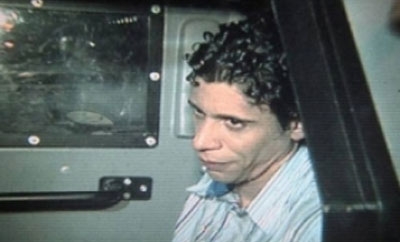Reports that an imprisoned Rio de Janeiro kingpin maintained drug trafficking operations in the city’s largest pacified slum with the help of corrupt police offer further evidence of trouble brewing for the city’s landmark “pacification” program.
According to newspaper O Globo, Antonio Francisco Bonfim Lopes, alias “Nem,” used his wife, Danubia de Souza Rangel, as an intermediary to relay orders to the drug trafficking gang he leads, known as Amigos dos Amigos, in the Rocinha “favela,” or shantytown, in the southern part of the city. Nem’s wife was arrested March 31 near the federal prison where Nem is incarcerated in Campo Grande, Mato Grosso do Sul, as part of an operation that also included the arrests of five community police officers in Rocinha.
The officers, all of whom worked for Police Pacification Units (UPPs) in Rocinha, are accused of taking bribes from Nem’s drug gang in exchange for providing information on police operations, as well as turning a blind eye to the sale of drugs within the slum.
InSight Crime Analysis
The arrest and subsequent conviction of Nem, who is said to have earned tens of millions of dollars from his drug trafficking operations in Rocinha, was heralded as one of the biggest successes of Rio’s pacification program. However, news that he continued to operate his drug gang from federal prison is yet another bad sign for the city’s much-lauded program.
This news, coupled with signs that other drug gangs, such as the Red Command, are reasserting themselves in Rio’s “pacified” slums, shows criminal groups are finding ways to continue their activities even in the face of increased police presence. Military forces were recently sent to the Complexo da Mare, a large slum complex in the north of the city, after outbreaks of violence against UPPs in other favelas.
SEE ALSO: Brazil News and Profiles
The arrest of the five community police officers from Rocinha’s UPP is also troubling, as these units are the centerpiece of the pacification program. The UPP posts are located in the heart of the favelas, theoretically allowing the units to respond quickly and forcefully to gang activity. The units are also meant to work with the community, giving residents an immediate avenue to report criminal activity.
If residents decide these units are unreliable, they will be much less likely to report crimes, and could even turn to the gangs themselves to reestablish order.

